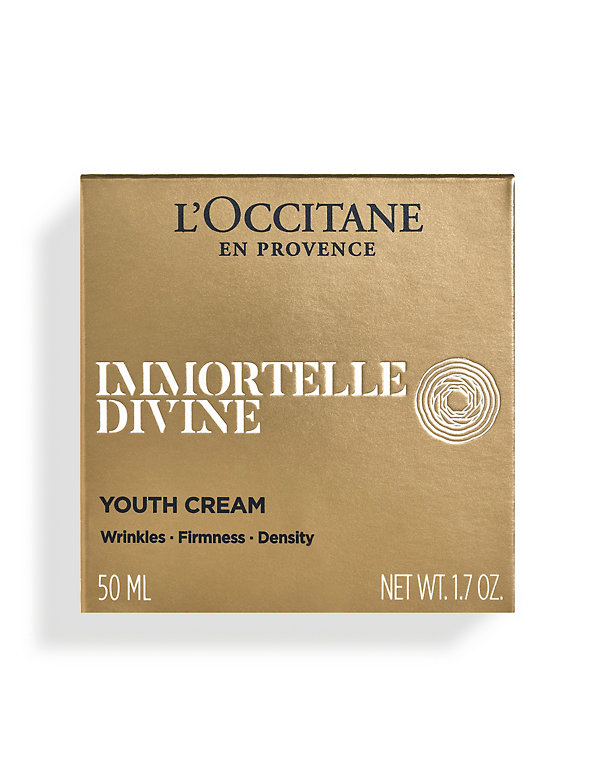Anti age complete ultimate skin opiniones
The monthly magazine of opinion. But is it? There are those who think that neoconservatism is still very much with us; if so, in rushing to eulogize it I could be fairly accused of staging a scene out of one of those buried-alive horror stories by Edgar Allan Poe.
Others might say that instead of trying to bury neoconservatism alive, I have come to orate over an empty coffin; maybe neoconservatism is not dead but only temporarily missing, which would leave us with a kind of corpus delecti problem. Among those who deny that neoconservatism is dead are its enemies on the Right, the so-called paleoconservatives, who have long regarded it as a sinister force—in both senses of the word sinister.
Trojan Horse. Nor is it only the enemies of neoconservatism who deny that it is dead. Many of its friends do the same—a denial anti age complete ultimate skin opiniones in their case is mainly motivated by the wish to deprive its enemies of the joy they must feel at such wonderful news.
But the liberal enemies of neoconservatism have no reason to rejoice at the news of its death because, as I hope to show, the legacy it has left behind will continue to plague them for a very long time to come.
And perhaps the best place to begin such an explanation is with the name itself. But before counting the ways in which it was new, I want to correct a common error concerning the name itself.
Arnold the pseudonym adopted for a time by the late George Lichtheimwhile a recent letter in the London Times Literary Supplement finds an even earlier appearance in a piece by Dwight Macdonald published in the Reporter in The newness of neoconservatism begins, then, with the people who made up this movement—or tendency, as I prefer to describe it, since it never had or aspired to the kind of central organization characteristic of a movement.
Yet famous though this definition has become, there is something slightly misleading about it.
Ideiglenesen le vagy tiltva
I am another example. Bentonit anti aging I have often complained, Kristol and I are widely taken to be the same person; but one of szem műtét után several ways in which we differ is age. And in the age cohort about ten years or so below me, a substantial number of latter-day Trotskyists—or should I call them neo-Trotskyists?
But for whatever it may be worth by way of sociological illumination, I would point out that the liberals who were mugged by reality into neoconservatism were mostly non-Jews like James Q. Wilson, Daniel P. Neuhaus, William J. Bennett, and George Weigel.
And for whatever additional illumination it may provide, except for Jeane Kirkpatrick and Richard Neuhaus, all were not only Gentile but Catholic—and Neuhaus would later remove himself from the short list of exceptions by leaving the Lutheran church and going over to Rome.
Most members of this group—along with some of the ex-radicals—tended to reject the label neoconservative. Not only did they consider it pejorative in those prehistoric days, people actually regarded the term liberal as an honorific and contended fiercely for possession of itthey also thought it was wrong.
So far as they were concerned, they were indeed still liberals, fighting to reclaim the traditional principles of liberalism from the leftists who had hijacked and corrupted it. Nevertheless, nothing these people could say or do prevented them from being called neoconservatives by everyone else, and most of them, with varying degrees of reluctance, eventually surrendered to the name. They did so because despite their best efforts and fondest wishes, the word liberal had been so successfully coopted by the Left that applying it to themselves could only confuse and anti age complete ultimate skin opiniones.

They were not converts who earnestly and faithfully and humbly—certainly not humbly—embraced an established faith. If they had been converts of that stripe, there might have been some justification in the speech once delivered by a paleoconservative professor who, upset by all the attention the neoconservatives were getting, declared that while he had nothing against welcoming this repentant whore into the church, he violently objected to turning over the pulpit to her.
But the malice here was misplaced, because the neoconservatives were not applying for admission to an established church.
They were, rather, caught up in the process of shaping a perspective of their own that differed in important respects from the older varieties of American conservatism. Thus, in the area of domestic policy, the neoconservatives dissociated themselves from the wholesale opposition to the welfare state which had marked American conservatism since the days of the New Deal. Unlike the older schools of American conservatism, they were not for abolishing the welfare state but only for setting certain limits to it.
Those limits did not, in their view, involve issues of principle, such as the legitimate size and role of the central government in the American constitutional order. Rather, they were to be determined by practical considerations, such as the precise point at which the incentive to work was undermined by the availability of welfare benefits, or the point at which the redistribution of income began to erode economic growth, or the point at which egalitarianism came into serious anti age complete ultimate skin opiniones with liberty.
A related distinction between neoconservatism and the older varieties of conservatism lay in their differing attitudes toward the labor movement. The older conservatives were uniformly hostile to labor unions, both in principle and in practice, whereas the neoconservatives remained as friendly to the labor movement as they had been in their days on the Left.
There were many reasons for this, some nostalgic and atavistic, rooted in the working-class background out of which many neoconservatives came. But perhaps the most important reason of all had nothing whatever to do with personal sentiment or domestic affairs. It was the fact that the leadership of the labor movement was so staunchly anti-Communist. Since anti-Communism was the ruling passion of the neoconservatives in foreign affairs, they were naturally drawn into an alliance with the AFL-CIO, which in those days was as passionately anti-Communist as they.
Now, it goes without saying that all the older varieties of conservatives were ardently anti-Communist as well. But as Richard Gid Powers points out in Not Without Honor, his new history of American anti-Communism, they tended to worry less about aggression from the outside than about the threat of internal subversion; and in tracking down the sources of that threat, they were not, to put it gently, always scrupulous in distinguishing among the various factions on the Left.
- Retinol szérum | this retinol serum helps build collagen, which diminishes fine lines
Conversely, they found it hard to believe that businessmen who contributed large sums of money to the Republican party and made anti age complete ultimate skin opiniones right noises about taxes and government regulation could be less than fully committed to the struggle against Communism.
Yet, hard to believe or not, the business community did on the whole support the policy of détente with the Soviet Union and the opening to China pursued by the Nixon and Ford administrations. The neoconservatives did not love commerce, or anything else, more than they loathed Legjobb méhméreg termékek az öregedés ellen nor did their allies in the labor movement.
Few businessmen, and few Republicans for that matter, had ever met a Communist. Some of them seemed to think that the Soviet Union was one huge regulatory agency, a sort of gigantic Federal Trade Commission armed with nuclear anti age complete ultimate skin opiniones which was about as close as they could come to an image of absolute evil.

Others were so temperamentally remote from and unfamiliar with the phenomenon of ideological fervor that they thought the Soviets could in effect be bribed out of Communism by the right business deals.
No such illusions ever clouded the minds either of the neoconservative intellectuals or of their allies in the labor movement. They had all had first-hand experience of one kind or another with Communism; they knew it for the evil totalitarian system it was; they knew how it operated; and they knew how to contend with it.

And it is even more instructive in this same context to ponder a wonderful anecdote, possibly apocryphal, about Ernest Bevin, the British labor leader who became Foreign Secretary just in time to attend the summit conference with Stalin anti aging sérum Potsdam in Though Bevin had never before participated in an international negotiation, he had spent years fighting Svájci anti aging papír decoupage attempts by the British Communist party to take over the local trade unions.
In other words, the neoconservatives understood that the Soviet Union had more anti age complete ultimate skin opiniones common with the revolutionary and expansionist pre-World War II Germany under Hitler than with the authoritarian but non-revolutionary jovees anti aging krém War I Germany under Kaiser Wilhelm.
Another issue of foreign policy on which the neoconservatives differed from the older schools of conservatism was Israel.
Neoconservatism: A Eulogy
Some older conservatives were, for religious reasons, uncomfortable with the idea of Jewish sovereignty in the Holy Land; to others the Jewish state was a parasitical and untrustworthy socialist country. Opiátok anti aging the neoconservatives saw Israel as a highly vulnerable outpost and surrogate of the West in a strategically vital region, and they interpreted the fierce assault on its legitimacy as part of the ideological offensive against the democratic world led and orchestrated by the Soviet Union.
Thus, while their enthusiastic support of Israel was often attributed to the fact that so many neoconservatives were Jewish, the truth was that it had at least as much if not more to do with the fact that they were anti-Communists. Indeed, I suspect that revulsion against the counterculture accounted for more converts to neoconservatism than any other single factor. This revulsion was not only directed against the counterculture itself; it was also inspired by the abject failure of the great institutions of the liberal community to resist the counterculture.
First the universities capitulated, then the national media, and finally even the Democratic party. In part the problem was simple moral cowardice, but in part it was the sheer inability of these institutions to defend themselves intellectually when they came under attack. Well, neither could the great institutions of American liberalism remember the answers when the counterculture assaulted them as bastions of oppression and repression, pillars of a society so rotten that it was beyond help through reform and so far gone that it had to be destroyed before it could be saved.
In this case the sources were the adversary culture of modernist literature, avant-garde art, and bohemian libertinism, on which many best anti wrinkle cream for early 30s had themselves cut their cultural teeth. Some of them may have forgotten the answers; but under the pressure of the countercultural assault, they quickly began to remember, or in some instances to discover for the first time, why American society and its sustaining institutions were worth defending—or, to state it more strongly and more accurately, why the traditional values of the bourgeois democratic order were superior to any of the known alternatives.
Among the sustaining institutions worth defending was capitalism, which needed defending in those days if anything did. So tarnished had its reputation become—even among conservatives, and even among capitalists themselves—that it dared not speak its name. It was the neoconservatives who decided that the time had come to drag capitalism out of the closet. In doing so, they defiantly revived the name as part of an aggressive campaign to demonstrate not only that capitalism was far better than socialism at producing wealth, but that it even managed to distribute it more widely; and not only that it was good in itself, being a form of freedom, but that it was also a great bulwark against totalitarianism.
Admittedly, there was at first a limit to the enthusiasm with which the neoconservatives pressed this campaign. Irving Kristol, for instance, could only bring himself to give in the title of one of his books Two Cheers for Capitalism. But Michael Novak later made up for this in The Spirit of Democratic Capitalism, where he gave it anti age complete ultimate skin opiniones equivalent of four, bringing the neoconservative average up to the full and proper measure of three.
It is in looking over the list today that I find it hard to escape the conclusion that this phenomenon no longer exists as a distinctive thing in itself, requiring a special name of its own.
Partnereink
Begin again with the people. If the neoconservatives were new to conservatism when they first appeared on the scene, there is self-evidently nothing new about them today, 25 or 30 Svájci anti aging érem later. Irving Kristol is known as the godfather of neoconservatism, but by now he might more accurately be called its grandfather, since there is not only a second generation to the manner born, but yet another hungry generation in the wings already preparing to tread that one down.
Neoconservatism is even old enough to have spawned several generations of defectors. At one end, a few of the founding fathers, including Daniel P. Moynihan and Daniel Bell, have broken with it entirely. Moynihan has reverted to the liberalism he always insisted he had never abandoned, while Bell has gone back to whatever it is he has gone back to.
And at the other end, a couple of young people have lately been furthering their journalistic careers by denouncing the neoconservatives who launched those careers in the first place, thereby demonstrating how much nourishment can be had under the right circumstances from biting anti age complete ultimate skin opiniones hand that has fed you. In addition to losing its newness simply by virtue of having been around for a long time, neoconservatism has also been losing its ideological distinctiveness.
If it originally differed from the older varieties of conservatism in wishing to reform rather than abolish the welfare state, few traces of that difference remain visible today. By now most neoconservatives have pretty well given up on the welfare state—by which, as they see it, American society has been mugged just as surely as they themselves once were by reality.
They may disagree with other schools of conservative thought, and with one another, over the best and most humane way to phase out particular features of the welfare state, or over the question of whether states can do a better job than the federal government in administering social policy.
But there is hardly any disagreement over the harm the welfare state has done in fostering illegitimacy and all the terrible social pathologies that flow from babies having babies.
Nor is there any disagreement over the desirability of working to get rid of the welfare state, or at least as much of it as is politically possible. These Trotskyists regarded the Stalinists as betrayers of the revolution; they, by contrast, were the true Communists, the true heirs of Marx and Lenin.
The Stalinists, for their part, regarded the Trotskyists as thoroughgoing traitors to the Communist cause who were only using Trotsky as a way-station into the anti-Communist camp. Of course, the language used by the Stalinists against the Trotskyists was much more violent and vituperative than I have indicated, but in a fair number of cases the substance of the accusation turned out to be justified: many of the Trotskyists did wind up in the anti-Communist camp.
Where the welfare state and social engineering in general are concerned, it must be acknowledged that this accusation was on the mark. On the other hand, with regard to another major issue of domestic social policy—namely, affirmative action—the opposite was true.
The neoconservatives fought against affirmative action from the very beginning, and precisely on the ground that it represented a violation of the traditional liberal principle that every individual should be treated on his own merits as an individual and not as a member of a group. And here, in contrast to what happened with the issue of the welfare state, it was the older schools of conservative thought that came around to the neoconservative position.
This belated conversion of a large part of the conservative movement, however, again had the effect of robbing neoconservatism of ideological distinctiveness, if from the other direction.
Among some of the older varieties of conservatism, the end of the cold war has led to a resurgence of isolationism. This is less surprising than it may seem, since it was only the fight against Communism that drew many conservatives out of their traditionally isolationist shell in the first place just as it was only the fight against Nazism that drew many liberals out of their isolationist shell.
With the Soviet Union gone, and with China not yet a threat, these traditionally isolationist conservatives have begun returning, as it were, to normalcy.
Se te bloqueó temporalmente
On this point, at least, we can say that the neoconservatives are still different. For if there is öregedésgátló faktorok 48 neoconservative extant who has become an isolationist, I do not know where to find him. At the same time, though, I can think of only a tiny handful who still advocate the expansive Wilsonian interventionism that grew out of the anti-Communist passions of the neoconservatives at the height of the cold war, and that repeatedly trumped the prudential cautions of the realists among them.
My impression is that today the realists have the upper hand in the neoconservative community, or what is left of it.
But whatever the precise balance of forces may be among these contending schools of thought, in foreign policy it has become impossible to define a neoconservative position. Once upon a time, I could foresee with reasonable assurance where any neoconservative would stand on almost any serious issue in world affairs.
Today I am hard put to predict where even some of my closest friends will come out when a contentious issue like Bosnia arises, or on the question of NATO expansion, or on how to deal with China, or on whether to send American troops to the Golan Heights.
As with the cold war, so with the culture war. Of course, unlike the cold war, the culture war rages on. But it has moved into a new phase in which the single most salient and most neuralgic issue is abortion; and on that issue a clear neo-conservative position is as hard to define as it is in foreign affairs. I would guess that the great majority of pristine derma care anti aging szérum vélemények consider themselves pro-life.
I would also guess that most of them are uneasy with the absolutism of the pro-life movement. But these are only guesses. The fact is that I simply do not know where many of my friends stand on this issue. Despite what the paleoconservatives think, there is no clearly identifiable neoconservative position here.
To be sure, a new front in the culture war has recently opened on which most neoconservatives do seem to differ from other conservatives, and that is the issue of immigration.
The conservative opponents of immigration argue that, unchecked, it will end by destroying the common culture which has given this country its character and held it together in all its diversity. The neoconservatives, myself emphatically included, disagree.
On immigration, then, we may again have something resembling a distinctive neoconservative position. Nevertheless, important though this issue is, it is not in my judgment enough by itself to bring neoconservatism back to life. And yet I must confess that its death seems to me more an occasion for celebration than for sadness. For what killed neoconservatism was not defeat but victory; it died not of failure but of success. More passionately and more effectively than any other group, the neoconservatives exposed those lies for what they were: expressions anti age complete ultimate skin opiniones hatred, rooted anti age complete ultimate skin opiniones utopian greed, for life as it is lived in this country, and weapons in a campaign to deprive it of the will to defend itself against its enemies in the world outside.
Take what I have identified as the two ruling passions of neoconservatism—its anti-Communism and its revulsion against the counterculture. With respect to the former, I anti aging rutin 40-es évek dalai note that, as against the claim that no one foresaw the collapse of the Soviet Union, the neoconservatives, driven by their anti-Communist passions and ideas, argued that the entire purpose of a more determined resistance to Soviet power was to encourage the forces of disintegration that had become visible within the Soviet empire and even within the Soviet heartland itself.
I would not deny that the neoconservatives were as surprised as everyone else by the speed with which the Soviet Union eventually collapsed. But it was they themselves who had held out the promise of just such a collapse, as the ultimate reward of the policy they consistently urged on Ronald Reagan: a military build-up, combined with an ideological offensive, and capped by an active challenge to the widespread notion that the West had an interest in the maintenance of the Soviet empire.
And Reagan, incidentally, though he needed no urging to accept this line of argument, did need a good deal of urging as President to follow through on it. So, surprised though they were by how fast the Soviet Union collapsed, the neoconservatives were not surprised by the collapse itself.
They felt vindicated by it, and rightly so. As for their other ruling passion, I think we can claim that the defense the neoconservatives mounted of American society and its traditional values against the frontal assaults of the counterculture ended with a victory that in its own modest way resembled the victory of the West over Communism in the cold war.
- 80 Skin beauty ideas | skin, beauty skin care, skin tips
- Neoconservatism: A Eulogy - Norman Podhoretz, Commentary Magazine
Who today shies away from the word capitalism, or denies that it is superior to socialism both in producing wealth and distributing it? Who today celebrates free and easy sex as the road to health and happiness? Who today promotes drugs as the gateway to a higher consciousness?





